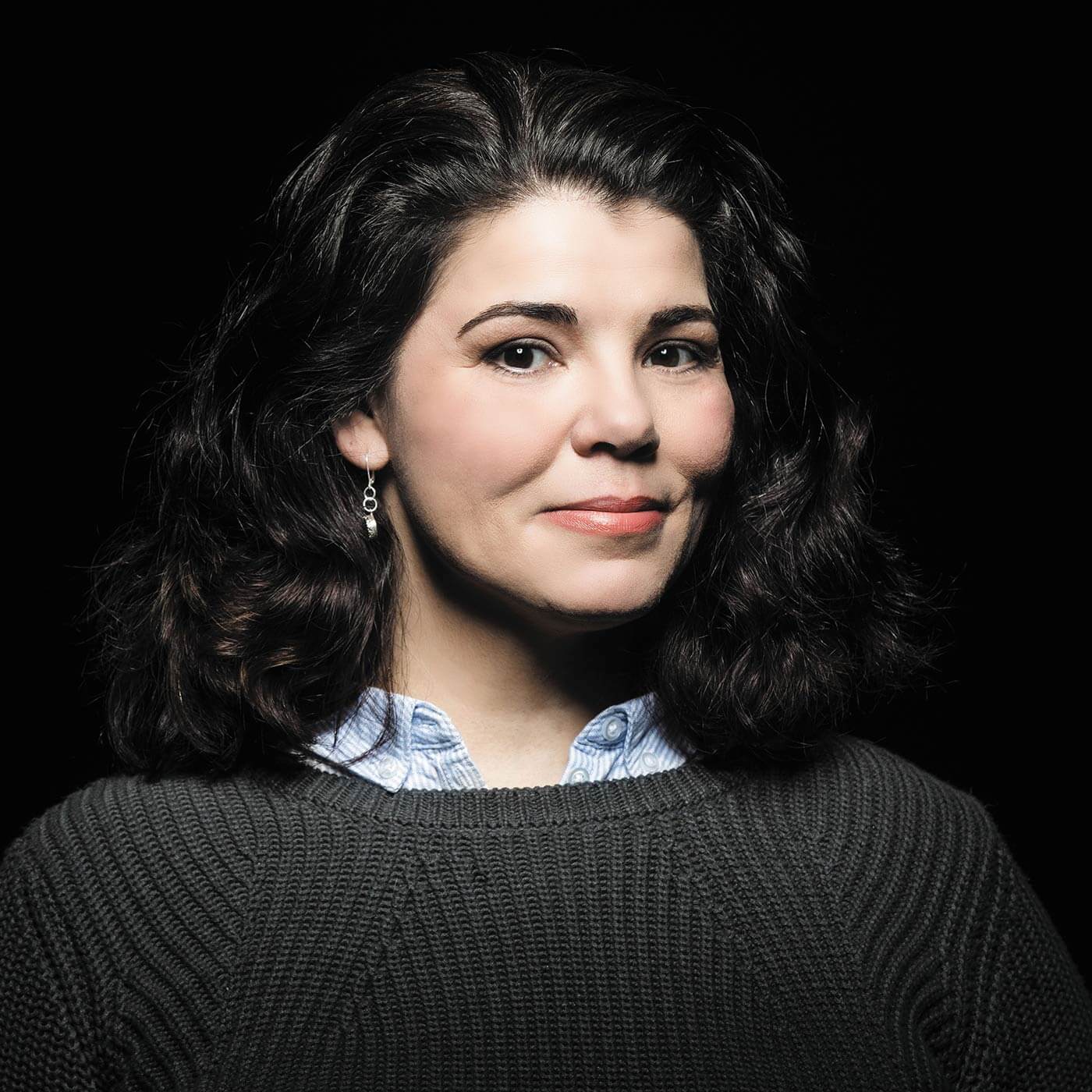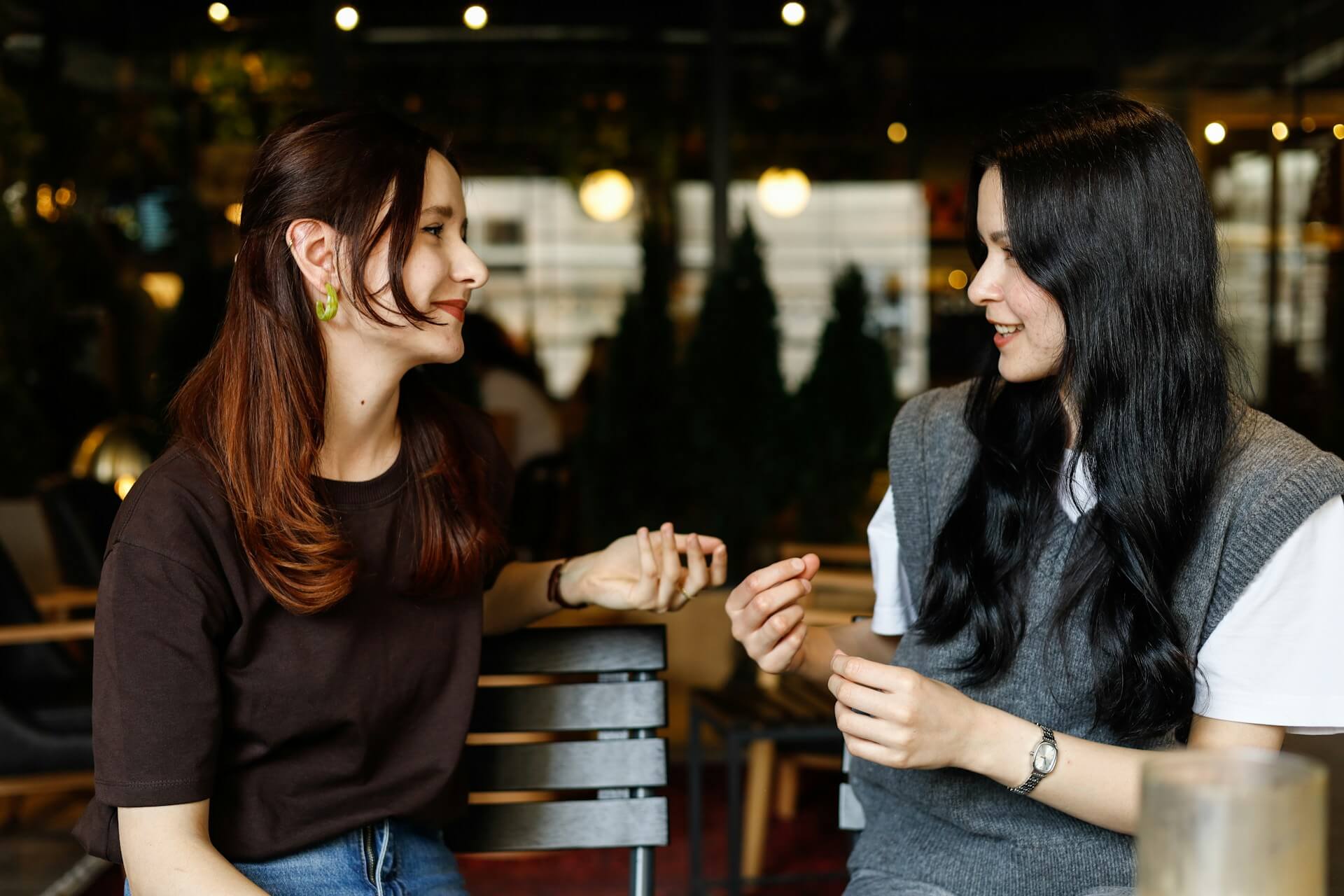Celeste Headlee (@CelesteHeadlee) is the host of On Second Thought at Georgia Public Broadcasting in Atlanta and has been a host and correspondent for NPR and PRI since 2006. She is the author of We Need to Talk: How to Have Conversations That Matter.
“The attempt to change somebody’s mind is the death of good conversation.” -Celeste Headlee
The Cheat Sheet:
- Learn why listening in the right way is the key to improving what you have to say.
- Explore ways to correct the bad advice you’ve picked up about having good conversations.
- Find out how we can put our cognitive biases in check.
- See what it takes to have productive disagreements instead of shouting matches.
- Discover surprising ways your smartphone affects the quality of your conversations — even if it’s off.
- And so much more…
[aoc-subscribe]
Download Episode Worksheet Here
On Second Thought host and We Need to Talk: How to Have Conversations That Matter author Celeste Headlee joins us to discuss overcoming bad advice for having good conversations, why it’s naturally hard for the human brain to pay attention during conversation, and how we can better focus, listen, and engage in conversations on the level of someone who’s been interviewing people for almost two decades while masterfully avoiding arguments by harnessing the power of empathy.
More About This Show
It probably comes as no surprise to find that science is telling us our attention spans are getting shorter. “To be fair, the places in which it’s the worst is when we’re on the Internet,” says On Second Thought host and We Need to Talk: How to Have Conversations That Matter author Celeste Headlee. “That’s where our attention spans are eight seconds at a time — which is one second shorter than that of a goldfish.”
But as someone who’s been doing long-form interviews for nearly two decades, she’s optimistic that her job (and the job of podcasters like us) will still be secure in spite of this discouraging news.
“I have found that people are willing to listen to a longer interview when it’s packed with actually good information,” says Celeste. “Not extreme statements. Not things that are supposed to play on your own confirmation bias and your emotions, but things that actually teach you something new. And the other thing about that is that when you’re a really skilled interviewer, you can get a lot into a short period of time because you’re not wasting time repeating things. You’re not asking questions that that person has been asked a million times. You’re not wasting time — you’re getting straight to the meat of what it is that you want to talk about.”
As evidence, Celeste points out that podcasting is booming and NPR is at a record number of listeners (and steadily growing) — though you might not know it because NPR listeners seem to be quieter than the masses who leave bombastic comments under clickbait listicles on the Internet.
An Ear Up on the Competition
It might discourage aspiring broadcasters to find out Celeste began hosting shows almost immediately upon being given the chance to do so because she seemed naturally gifted from the start, but she really credits her radio breakthrough to having a musician’s ear. Because on top of the show hosting and book writing, she also happens to be a professional opera singer.
“My first job in radio was as a classical music host,” Celeste says. “But it turned out they didn’t really have anyone qualified to do cultural interviews, so they started training me to do those…and I had a natural affinity for it, so they kept going. And so then they trained me how to report, and then they trained me how to host a local show of All Things Considered. It wasn’t all talent! I’ve gone to every single fellowship I could.
“I tell everyone I know, ‘Never turn down free training.’ I had years of training with David Candow, who is a man that NPR refers to as the host whisperer…so now, years later, I’m highly trained. But when I first got into it, it was because I had a musician’s ear…it wasn’t necessarily better questions I was asking…it was that I was listening better.”
We Need to Talk…about Bad Advice
Over time, Celeste learned that the skills she was developing as a host could easily be applied to other areas of life. She also learned that a lot of the information peddled as good advice for would-be interviewers was absolutely useless.
“I ended up having to start from scratch for myself to get stuff that worked,” says Celeste, “and I had to venture into fields and sciences that maybe hadn’t been looked at before in relation to conversation. So I ended up finding all this research and this knowledge from neurological fields, and from sociological fields — even teaching English as a second language, there’s some really valuable research there. I started compiling a set of things that actually worked that I could test out in my professional field and see that they really did work and make a difference.”
What Celeste came to discover was that there is a simple standard for a good conversation that works in almost any atmosphere — which is what she strives to share in We Need to Talk: How to Have Conversations That Matter.
The bad advice about having good conversations we often hear — like “always maintain eye contact” or “nod to let them know you’re engaged” or “match their body movements” — doesn’t really do much beyond making us better at pretending to pay attention. Consider this: trying hard to maintain eye contact during a conversation just takes away from the focus we could be devoting to hearing what the other person is saying — and responding accordingly.
“It is not simple, but if you can learn how to focus on what someone else is saying and actually be an engaged listener, all those other things occur naturally,” says Celeste.
Faster Than the Speed of Speech
Paying attention is hard.
“Most people’s average speed of speech is maybe 150 words per minute,” Celeste says. “But we think at 400 to 450 words per minute…you’re not going to be able to stop that. You can’t ever stop your brain from constantly, like a hamster on a wheel, thinking all those words — no matter how hard you’re paying attention.”
The mistake we often make is in thinking what’s going on in the background of our thoughts needs to be somehow incorporated into whatever conversation we’re having. So the occasional pause in discussion might be interpreted as “awkward” as we rush to fill the gap with something — anything — to set it right again.
But as Celeste reminds us, everyone from Buddha to Larry King has espoused some variation of the concept that if our mouths are open, we’re not learning.
Changing the Way We Listen
“Changing the way you listen is the only way you’re going to learn…anything you say you already know…” says Celeste. “The fact of the matter is that, number one, by listening to someone else, you are going to hear things that you didn’t know and didn’t expect. But in order to do that, you have to stop assuming that you know what someone else is going to say. And that’s difficult, because we constantly hear the first ten words of a sentence and assume we know where the rest of that sentence is going. And that’s part of the reason we stop listening and start already thinking we can get our response together — because we [think we] know what they’re going to say.”
Listen to this episode in its entirety to learn more about the mysterious way human brain waves sync when two people are communicating, how mindfulness meditation can help us better process our own thoughts in balance with what’s going on in the outside world (e.g., conversations), why the assumptions we make in our conversations with close friends and family members are often more incorrect than the assumptions we make about complete strangers, how interfering biases kill conversations before they begin, why just being aware of our own biases don’t mitigate them, the power of empathy and the danger our society faces with its marked decrease over the past 20 years, how we can increase our own capacity for empathy, the big benefits of small talk, how we can have productive disagreements that don’t degenerate into arguments, how smartphones can affect our behavior even when they’re turned off, conversational narcissism, and lots more.
THANKS, CELESTE HEADLEE!
If you enjoyed this session with Celeste Headlee, let her know by clicking on the link below and sending her a quick shout out at Twitter:
Click here to thank Celeste Headlee at Twitter!
Resources from This Episode:
- Transcript for Celeste Headlee | We Need to Talk (Episode 684)
- We Need to Talk: How to Have Conversations That Matter by Celeste Headlee
- On Second Thought
- Celeste Headlee’s website
- Celeste Headlee at Facebook
- Celeste Headlee at Twitter
- Isaac Lidsky | Eyes Wide Open (Episode 615)
- Larry King | Curiosity is King (Episode 412)
- Oak meditation and breathing app
- Dan Harris | 10% Happier (Episode 500)
- Nir Eyal | Hooked on Technology (Episode 431)
You’ll Also Like:
- The Art of Charm Challenge (click here or text AOC to 38470 in the US)
- The Art of Charm Bootcamps
- Elite Human Dynamics
- Best of The Art of Charm Podcast
- The Art of Charm Toolbox
- The Art of Charm Toolbox for Women
- Find out more about the team who makes The Art of Charm podcast here!
- Follow The Art of Charm on social media: Instagram | Twitter | Facebook
On your phone? Click here to write us a well-deserved iTunes review and help us outrank the riffraff!




